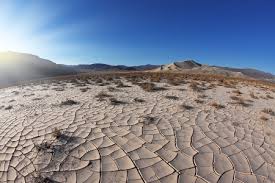记忆方法
【记法】分解为:d(冻)+earth(土地)
【联想】土地结冻了就长不出庄稼,闹饥荒是自然的了
【记忆2】谐音:得死。==》因为饥荒,很多人都得饿死。
【联想】土地结冻了就长不出庄稼,闹饥荒是自然的了
【记忆2】谐音:得死。==》因为饥荒,很多人都得饿死。
中文词源
dearth 珍贵
来自dear, 贵重,珍贵。
英语词源
- dearth (n.)
- mid-13c., derthe "scarcity" (originally used of famines, when food was costly because scarce; extended to other situations of scarcity from early 14c.), abstract noun formed from root of Old English deore "precious, costly" (see dear) + abstract noun suffix -th (2). Common Germanic formation, though not always with the same sense (cognates: Old Saxon diurtha "splendor, glory, love," Middle Dutch dierte, Dutch duurte, Old High German tiurida "glory").
权威例句
- 1. There was a dearth of reliable information on the subject.
- 关于这个课题缺乏可靠资料。
- 2. There is a dearth of good children's plays.
- 目前缺少优秀的儿童剧.
- 3. In our dearth of ack - ack guns all sorts of contrivances were used.
- 在缺少高射炮的时候,我们利用了各种各样的巧妙方法.
- 4. We strolled along streets that the dearth of motor traffic made appear both old - fashioned and serene.
- 我们顺着街道遛跶,由于车辆稀少,市里显得陈旧而宁静.
- 5. The dearth of money now must put reform and centre.
- 财力匮乏,现在必须做出重大改革.
